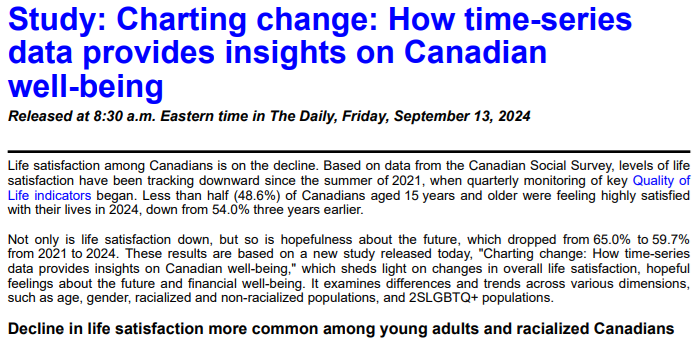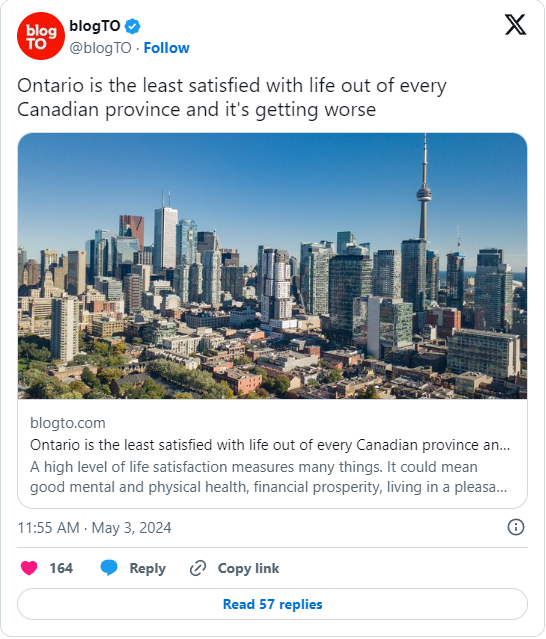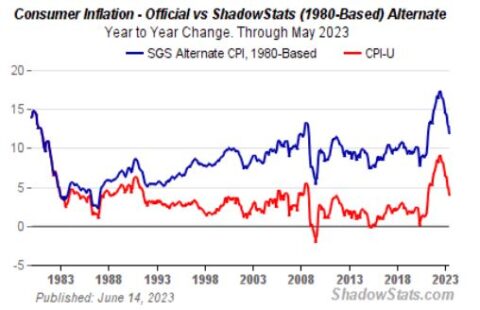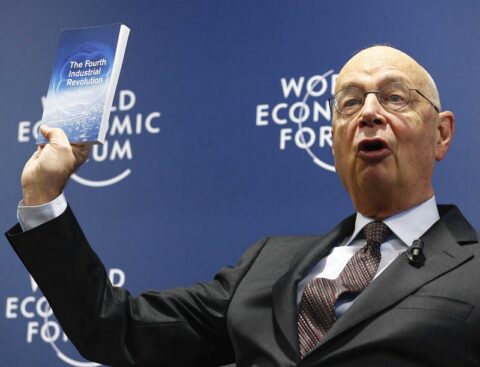In one sense, we should be quite used to Statistics Canada giving us unwelcome economic news, given the state of the Canadian economy over the last decade. What seems less in character is that they’re connecting the dots between our obvious national financial decline and showing how directly it has impacted ordinary Canadians’ views about life in Canada and what they expect in the future:
Life satisfaction among Canadians is on the decline. Based on data from the Canadian Social Survey, levels of life satisfaction have been tracking downward since the summer of 2021, when quarterly monitoring of key Quality of Life indicators began. Less than half (48.6%) of Canadians aged 15 years and older were feeling highly satisfied with their lives in 2024, down from 54.0% three years earlier.
Not only is life satisfaction down, but so is hopefulness about the future, which dropped from 65.0% to 59.7% from 2021 to 2024. These results are based on a new study released today, “Charting change: How time-series data provides insights on Canadian well-being”, which sheds light on changes in overall life satisfaction, hopeful feelings about the future and financial well-being. It examines differences and trends across various dimensions, such as age, gender, racialized and non-racialized populations, and 2SLGBTQ+ populations.
Decline in life satisfaction more common among young adults and racialized Canadians
Life satisfaction can be considered a pulse check on Canadians’ overall well-being. While this indicator of subjective well-being has been declining for the past few years, there is nonetheless substantive variation in life satisfaction across different demographic groups. Younger adults (aged 25 to 34) had notable declines in their life satisfaction in 2024, with their proportions declining an average of 3.9 percentage points per year since 2021. By 2024, fewer than 4 in 10 (36.9%) of these adults were highly satisfied with their lives.
Meanwhile, seniors (aged 65 and older) maintained their high level of satisfaction, with 61.5% being happy with their lives in 2024. This measure of subjective well-being has remained relatively stable among senior Canadians since 2021.
In addition, racialized Canadians, who are younger on average than non-racialized Canadians, saw greater drops in life satisfaction than their non-racialized counterparts. The proportion of racialized Canadians reporting high levels of life satisfaction fell from 52.7% in 2021 to 40.6% in 2024. This decline was more than five times higher than the decrease observed for non-racialized Canadians, who experienced a decline in life satisfaction of 0.8 percentage points per year from 2021 to 2024. In 2024, over half (51.5%) of non-racialized Canadians were happy with their lives.
It really is a bad sign when the largest province in Confederation is also becoming the most disheartened by its economic prospects:










